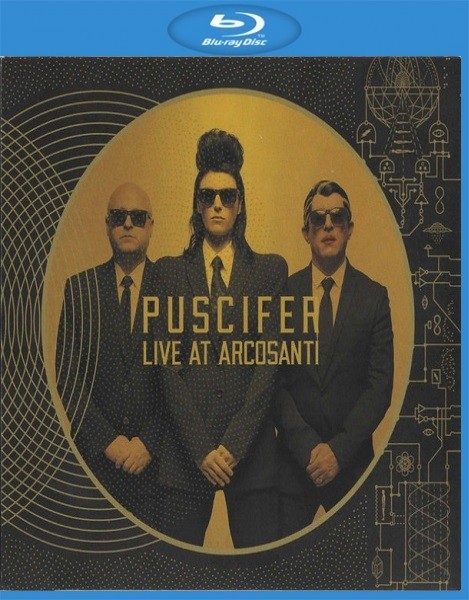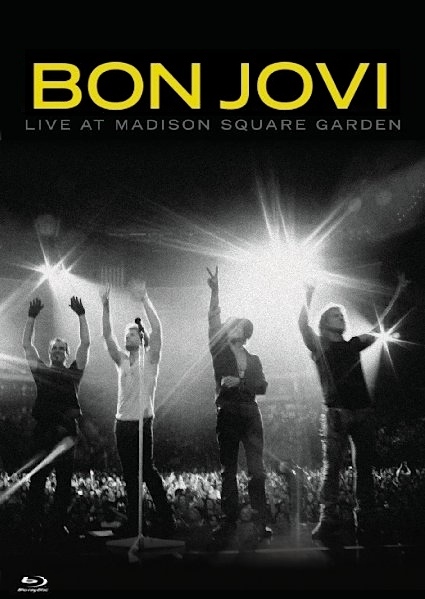
Simon Trpčeski, Royal Liverpool Philharmonic Orchestra, Vasily Petrenko – Prokofiev: Piano Concertos Nos. 1 & 3 (2017)
FLAC (tracks) 24 bit/96 kHz | Time – 52:29 minutes | 910 MB | Genre: Classical
Studio Masters, Official Digital Download | Front Cover | © PM Classics Ltd.
The chief draw on this release by Simon Trpceski is the Piano Concerto No. 1 in D flat major, Op. 10, composed while Sergey Prokofiev was still a student in St. Petersburg. Prokofiev thought highly enough of the work to premiere it in Moscow himself, and indeed it’s a student work of the best kind, brash and overflowing with confidence. Consider and sample the broad opening and, after about a minute, the angular music, a kind of second theme, seems as though it comes from an entirely different composition and dares you to imagine how it can be integrated with the opening. Prokofiev goes on to do just that, of course, and it was music like this that antagonized conservative listeners and, in an age when such antagonism was box office gold, did much to propel Prokofiev’s early career. In its broader outlines the work is not so dissimilar to the better-known Piano Concerto No. 3 in C major, Op. 26, one of the peaks of Prokofiev’s neoclassic output. The performances by Trpceski and the Royal Liverpool Philharmonic Orchestra under Vasily Petrenko are very strong, capturing the exuberance of the Piano Concerto No. 1 and delivering a crowd-pleasing, sparkling Third with no hint of the mordant quality many attach to the work. The Overture on Hebrew Themes, Op. 34bis, is a fine, little-known entr-acte. A crowd-pleasing Prokofiev release.
Read more
Royal Liverpool Philharmonic Orchestra, Vasily Petrenko – Shostakovich: Symphony No. 7 ‘Leningrad’ (2013)
FLAC (tracks) 24 bit/96 kHz | Time – 01:19:07 minutes | 1,59 GB | Genre: Classical
Studio Masters, Official Digital Download | Front Cover | © Naxos
Three weeks after the Nazi invasion of the Soviet Union in June 1941, Shostakovich volunteered with the Home Guard in Leningrad. As the siege of the city intensified, he worked on his Seventh Symphony, completing three movements before being forced to leave Leningrad and travel east by train. The work was completed in December that year. Initially he gave each movement a programmatic title, but later withdrew them, leaving this epic work as an emblem of heroic defiance in the face of conflict and crisis: ‘I dedicate my Seventh Symphony to our struggle against fascism, to our coming victory over the enemy, to my native city, Leningrad.’
Read more
Oslo Philharmonic Orchestra & Vasily Petrenko – Richard Strauss: Eine Alpensinfonie, Op. 64 / Tod und Verklärung, Op. 24 (2020)
FLAC (tracks) 24 bit/192 kHz | Time – 01:15:42 minutes | 2,49 GB | Genre: Classical
Studio Masters, Official Digital Download | Front Cover | © Lawo Classics
Oslo Philharmonic Orchestra and Vasily Petrenko offer here the third and final release in a series of recordings of Richard Strauss’s orchestral music. On this CD the listener is presented with the tone poems “Eine Alpensinfonie” and “Tod und Verklärung”, works that long have been part of the Oslo Philharmonic’s repertoire.
Read more
Vasily Petrenko – Prokofiev: Symphony No. 6 – Myaskovsky: Symphony No. 27 (2021)
FLAC (tracks) 24 bit/192 kHz | Time – 01:16:25 minutes | 2,47 GB | Genre: Classical
Studio Masters, Official Digital Download | Front Cover | © Lawo Classics
Second and finale volume of recordings by Oslo Philharmonic Orchestra and Vasily Petrenko of Prokofiev’s and Myaskovsky’s symphonic works.
Both Prokofiev and Myaskovsky, who were close friends, suffered under the oppressive Soviet regime, and, in the course of their careers, had to compose with threats of artistic censorship hanging over them.
Prokofiev composed Symphony No. 6 in E-flat minor, Op. 111, between 1945 and February 1947, though some sketches date from 1944 before he completed the Symphony No. 5. It is written for large orchestra and is a profound and personal work with an unmistakable tragic element. He said himself that this symphony was inspired in part by the war years: “Now we are rejoicing in our great victory, but each of us has wounds that cannot be healed”.

Vasily Petrenko – Mussorgsky: Pictures at an Exhibition, Khachaturian & Spartacus Suite (2019)
FLAC (tracks) 24 bit/96 kHz | Time – 01:13:49 minutes | 1,33 GB | Genre: Classical
Studio Masters, Official Digital Download | Front Cover | © Onyx Classics
A Russian orchestral showcase from Vasily Petrenko and the award willing Royal Liverpool Philharmonic Orchestra present a programme of Russian orchestral classics – with some surprises.
Ravel’s brilliant orchestration of Mussorgsky’s Pictures at an Exhibition and Khachaturian’s sumptuously romantic suite from his ballet ‘Spartacus’ with its famous ‘Adagio’ keep company
with Kabalevsky’s fizzing overture to his opera ‘Colas Breugnon’ and Schehedrin’s ‘Naughty Limericks plus a wistful Rachmaninov song in beautiful orchestral arrangement.
Read more
Vasily Petrenko – Elgar: Enigma Variations, In the South, Serenade for Strings (2019)
FLAC (tracks) 24 bit/96 kHz | Time – 01:06:29 minutes | 1,11 GB | Genre: Classical
Studio Masters, Official Digital Download | Front Cover | © Onyx Classics
One of the happiest results of the influx of Russian talent into Britain has been conductor Vasily Petrenko’s tenure with the Royal Liverpool Philharmonic Orchestra, which he has led since 2009 and brought into the league of the major London orchestras. His recordings for the fine independent Onyx label have all been notable, but this one, featuring Elgar’s Enigma Variations, Op. 36, is especially strong. Surely Petrenko did not have the Enigma Variations in his blood, and you might offhand expect him to make them sound like Tchaikovsky. Not a bit of it, this is a lean, light, and beautifully sculpted Enigma Variations, where sentiment emerges where it is warranted-sample the flowing and famous “Nimrod” variation, track 14- but is otherwise held in reserve, and each of the character sketches that make up the work have a vivid, lively quality. The use of Elgar’s In the South, Op. 50, as a curtain-raiser is not totally successful, with a sense of direction not as clear as it might be. The Serenade for Strings in E minor, Op. 20, shows just how attractive the Royal Liverpool’s string tone has become these days, and it’s a fine performance. But if you want to get to the highlight, skip to the Enigma Variations: Petrenko has given it one of its best performances in recent years.
Read more
Oslo Philharmonic Orchestra & Vasily Petrenko – Prokofiev: Symphony No. 5 – Myaskovsky: Symphony No. 21 (2020)
FLAC (tracks) 24 bit/192 kHz | Time – 01:02:32 minutes | 2,05 GB | Genre: Classical
Studio Masters, Official Digital Download | Front Cover | © Lawo Classics
Prokofiev described his Fifth Symphony, his first composition in this genre for sixteen years, as the culmination of an entire period in my work. I conceived it as a symphony on the grandeur of the human spirit. He regarded this symphony, composed in the summer of 1944, as his finest work. Nikolai Myaskovsky (18811950) was certainly one of the most prolific symphonic composers of the twentieth century. He was born in Novo-Georgievsk, which was then part of the Polish territories of the Tsarist empire. He took private tuition with Gliere in Moscow, then, having decided to devote himself to composition, studied with Rimsky-Korsakov and Lyadov at the St. Petersburg Conservatory, while establishing what would prove to be a life-long friendship with Prokofiev. His earliest composition was a group of piano preludes (1896-8) but it was not until 1908 that he wrote the first of his twenty-seven symphonies.
Read more![Oslo Philharmonic Orchestra, Vasily Petrenko - Nikolay Rimsky-Korsakov: Capriccio Espagnol, Op. 34, Russian Easter Festival Overture, Op. 36 & Scheherazade, Op. 35 (2020) [Official Digital Download 24bit/192kHz] Download](https://imghd.xyz/images/2022/07/29/sxenq5qfgj3ra_600.jpg)
Oslo Philharmonic Orchestra, Vasily Petrenko – Nikolay Rimsky-Korsakov: Capriccio Espagnol, Op. 34, Russian Easter Festival Overture, Op. 36 & Scheherazade, Op. 35 (2020)
FLAC (tracks) 24 bit/192 kHz | Time – 01:14:55 minutes | 2,41 GB | Genre: Classical
Studio Masters, Official Digital Download | Front Cover | © Lawo Classics
The cultural and artistic exchanges between France and Russia have long been exciting, despite this great back-and-forth movement being stopped dead in its tracks by the Soviet Union. Ballets born in the court of Louis XIV would make their way to St. Petersburg and return to France with the great scores of Tchaikovsky and his successors, restoring strength and vigor to the dance.
(more…)





